Chemistry

Educators and Parents, Sign Up for The Cheat Sheet
Weekly updates to help you use Science News Explores in the learning environment
Thank you for signing up!
There was a problem signing you up.
-
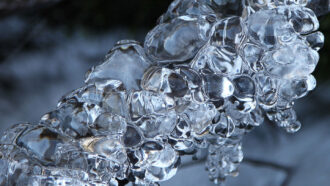 Materials Science
Materials ScienceLet’s learn about the weird science of ice
Better understanding of ice could lead to new deicing materials or even, someday, weather control.
-
 Chemistry
ChemistryScientists Say: Rubisco
Rubisco is a key protein in the process of photosynthesis, which feeds plants — and, in turn, us.
-
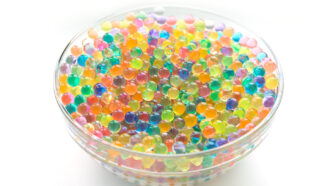 Materials Science
Materials ScienceScientists Say: Hydrogel
Tangled polymer chains help hydrogels hold their shape despite being full of water.
-
 Environment
EnvironmentFor a better brick, just add poop
Sewage sludge. Cow dung. They’re not just waste — scientists are finding uses for processed poop in construction materials.
By Laura Allen -
 Physics
PhysicsHow salty does the sea have to be for an egg to float?
Some objects float on top of the ocean, and other objects sink to the bottom. Why? Try this eggs-periment to find out!
-
 Chemistry
ChemistryExplainer: All about carbon dioxide
Animals and other life on Earth exhale carbon dioxide, which plants use for photosynthesis. But too much of this gas can perturb Earth’s climate.
By Trisha Muro -
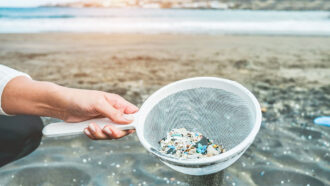 Environment
EnvironmentMicroplastic pollution aids viruses and prolongs their infectivity
The tiny plastic bits give these germs safe havens. That protection seems to increase as the plastic ages and breaks into ever smaller pieces.
-
 Chemistry
ChemistryWas that fingerprint left during a crime? A new test may answer that
In what could be a boon to forensics, Iowa State University chemists have come up with a way to analyze the age of fingerprints.
-
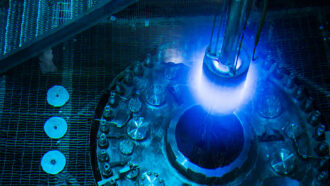 Physics
PhysicsExplainer: Radiation and radioactive decay
Like clockwork, radioactive forms of some elements shed parts of themselves as they attempt to become nonradioactive.
By Janet Raloff and Trisha Muro -
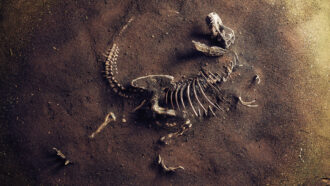 Physics
PhysicsExplainer: Radioactive dating helps solve mysteries
Knowing the decay rate of radioactive elements can help date ancient fossils and other artifacts.
By Trisha Muro -
 Earth
EarthFossil-fuel use is confusing some carbon-dating measurements
Carbon-14 dating of recent artifacts will soon give scientists confusing results. That’s another price society pays for its reliance on fossil fuels.
By Trisha Muro -
 Chemistry
ChemistryForensic scientists are gaining an edge on crime
Advances in forensic science are helping to recover invisible fingerprints and identify missing people from bits of tissue or bone.